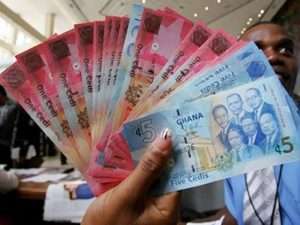A Financial Analyst, Benjamin K. Arthur, has welcomed the measures taken by Ghana’s central bank, the Bank of Ghana (BoG) to resolve the fall of the local currency, the Cedi.
In his view, the measures will eventually strengthen the Cedi against the major trading currencies, especially the Dollar.
“Well, I know the Bank of Ghana has taken some apt measures to resolve this matter, I mean the fall of the Cedi against the dollar. As an analyst, I am optimistic that these measures will yield positive results.
“I know the Bank of Ghana is tackling the issue of pricing in dollars in the country. When this is achieved, most definitely, the strength of the Cedi will go up,” he told 3news.com in an exclusive interview on Tuesday May 31 while reacting to a petition sent to the Attorney General to prosecute officials of the central bank due to the drop in the strength of the Cedi.
Another economist, Samuel Dawson is also reported to have lauded the BoG for the measures introduced to deal with the situation.
“The central bank has actually been on top of issues to be fair, they have had a move ahead to implement measures which will help anchor the economy.
“At the second MPC meeting of this year, the Bank had to hike the policy rate to 17 per cent on the basis that the move will help stem inflation. Although rising inflation is not particular to only Ghana but a global one as a result of supply chain disruptions and other factors most central banks across the world have to implement a similar strategy to address their respective situations,” he said.
Some of the measures taken so far include the following Policy rate hikes.
Cumulatively since November 2021, the Bank’s Monetray Policy Committee (MPC) has raised the policy rate by 550 basis points. First, 100 basis points in November 2021, then 250 basis points in March 2022, and additional 200 basis points increase in May.
Currently, the policy rate stands at 19 percent. These tight monetary policy actions are expected to dampen the heightened inflationary pressures in the medium term.
Reversal of Covid-reliefs: In addition to the policy rate increases, the Bank has reversed the prudential regulatory reliefs extended to universal banks at the height of the pandemic. Under these measures, the Cash Reserve Ratio was increased to 12 percent; the Capital Adequacy Ratio reset back to 13 percent; and the provisioning rate for loans in the Other Loans Exceptionally Mentioned (OLEM) category reset to the pre-pandemic level of 10 percent.
These are intended to withdraw excess liquidity from the system and moderate demand pressures.
Extended FX Auctions: To ease off increased volatility in the foreign exchange (FX) market, the Bank extended the forward auctions to include the Bulk Oil Distributing Companies. This formed part of the measures taken by the Bank to address the FX liquidity constraints within the local petroleum sector and aid price discovery, especially for the general pricing window within the downstream sector.
Fiscal measures: To complement all these efforts, the government announced a 20 percent expenditure cut while enhancing revenue mobilization measures to ensure the attainment of the fiscal deficit target for 2022. The government further announced a syndicated arrangement of US$2.0 billion in line with approved external financing for 2022 and for liability management.
By Laud Nartey|3news.com|Ghana


